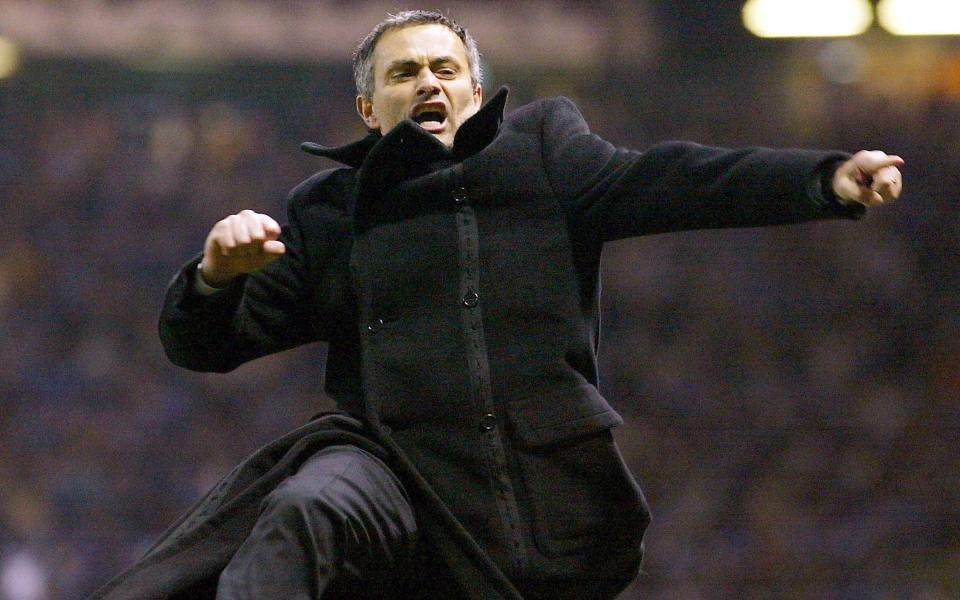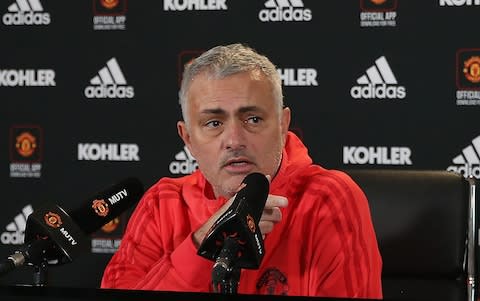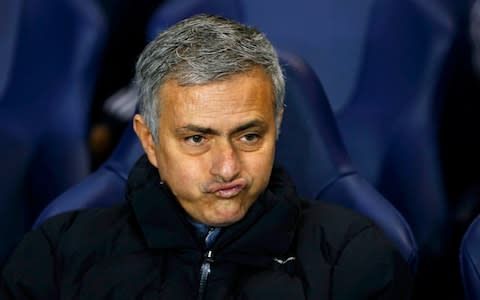Spurs manager job offers us a chance to wonder: whatever happened to that Jose Mourinho guy?

He knows that even for him, rich beyond his imagination, his children grown-up, and this addiction to elite management and to the spotlight, that there will not be a limitless number of opportunities as he gets towards 60 and the game changes quicker than ever.
Jose Mourinho may even glance out at the training fields in Enfield and think back to when Daniel Levy offered him the Tottenham Hotspur job in 2007, when the prospect of accepting never entered his mind.
Spurs were a different club then, but also Mourinho was a different manager – younger, unique in that era and the great disruptor of English football when he was sacked by Chelsea the first time after five trophies in three seasons.
He was just 44, younger than Mauricio Pochettino is now, and like his Spurs predecessor there was much sympathy for Mourinho when he was dismissed, although every time since there has been less and less.
In 2007, he was never going to accept managing Spurs, although in 2007 neither would he have accepted Spurs as they are in 2019, much elevated but still nowhere near a financial super-club. By that standard alone we can see that Mourinho’s position has changed.
His last two jobs in England have been flame-outs, four trophies including a third career Premier League title in 2015 followed by, in both cases, a kind of breakdown. No other word really does it justice. A man who looked at times variously depressed, spiteful, insecure and endlessly talking his way out of a job.
Still, Spurs feel a better fit than Manchester United where he always felt he was unjustly the third choice, and three years too late. On his arrival Wednesday he talked about his enduring passion for the game and his faith in young players, boxing off the old criticisms as early as possible.
He still has that intelligence and the cunning to win any game on any given day against any opponent. The wider question is whether he can manage all the other days in between, the disappointments, the fallible players, the limitations of budget, and talent, and fitness.
What does Mourinho want? It cannot just be the money. Since his sacking at Old Trafford he has accepted a few of the commercial opportunities that were impossible to fulfil while managing a club. I watched him breeze through a Q&A at the Liga headquarters in Madrid in September on behalf of a live results app, a full complement of Spanish media in attendance even though they were forbidden from asking a single question. The Paddy Power commercial only worked because Mourinho really can act. But then he has spent more of his career on primetime television than most of the country’s most celebrated actors.

What he wants is to recapture what he thought he had at the best moments of his career. Like the two seasons between 2002 and 2004 at Porto when he felt like a revolutionary, frustrating and outwitting opponents. Winning the Uefa Cup and then grinding out wins in the Champions League-winning season that followed.
There were the first two seasons at Chelsea, when occasionally they would blow the opposition away. There were the Inter Milan years when he was arguably at his peak.
He has won just one league title since 2012, the year of his Liga triumph with Real Madrid, as well as two League Cups and one Europa League. It still bears comparison with any peer but having set a ferocious pace in the early years things have changed.
Ask Mourinho and he will say that the pieces were not in place second time around at Chelsea, or then again at United and although he will talk in general terms and mention no names it will be abundantly clear who he is talking about.
But the responsibility rests with him too. He says that he has no working template and that his approach is informed by the resources at his disposal. Yet somewhere along the way, it got harder – wealthier rivals and opposing managers who learned the value of a charismatic, outspoken presence – and Mourinho changed.
On New Year’s Day 2015, his Chelsea team took the lead at White Hart Lane having dominated the first 15 minutes and went on to lose 5-3 to Spurs, a game that shaped Mourinho’s approach to the second half of that title-winning season. Having lost their lead at the top of the Premier League they were much more conservative thereafter. In the League Cup final against Spurs three months later, Mourinho would later say he was “strategic”. Kurt Zouma played holding midfield.

Elsewhere the seeds of the collapse in the following campaign were planted, with disquiet among squad and staff. It is hard to remember Mourinho ever so fulfilled in his job again after the 2014-2015 season. There was nothing so damaging for his brand of total control as his powerlessness at the steep decline over the next six months at Chelsea.
Since then the ideal has always seemed out of reach and, as he has felt his grip on power loosening, so he has sought to play a lower risk kind of game. There have been the demands for respect, the referencing of past triumphs that felt awkwardly rehearsed.
Like the rest of us, he must watch the footage of the young Mourinho making bold, screw-you predictions about his own abilities and wonder: what happened to that guy? That is the life that he seeks to recapture. When he had less to lose and no great reputation to gamble and all the rivals he targeted were older than him, and not younger as they seem to be these days.

 Yahoo Sport
Yahoo Sport 




































